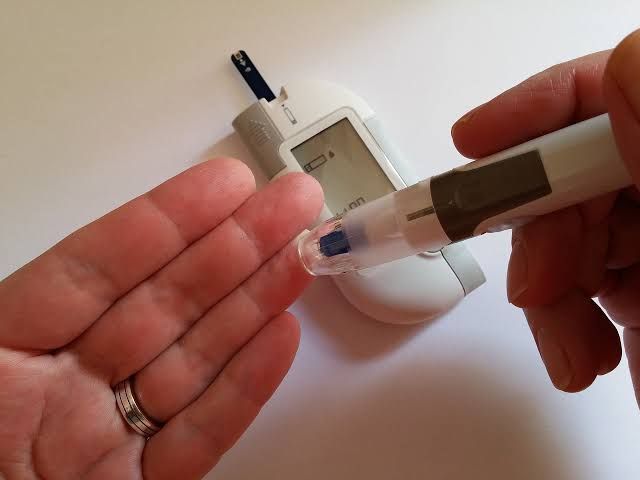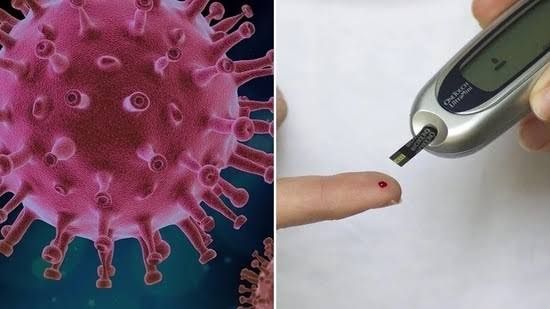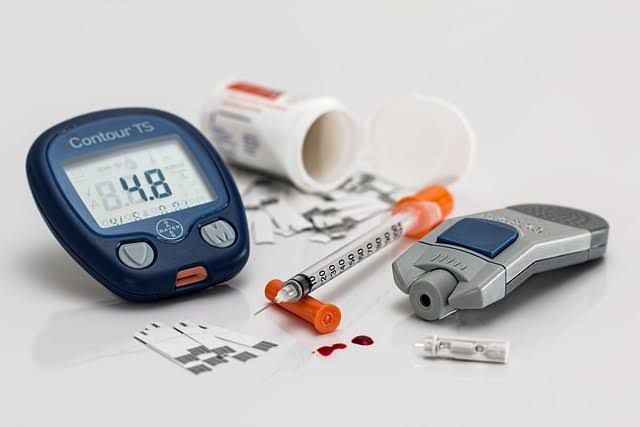
Rahmanir Rahim
Assalamu Alaikum Wa Rahmatullahi Wa Barakatuhu
Dear Companions Today I want to share with you some words about the evils of killing foetuses.Welcom to this post and congratulations to all.
Diabetes mellitus, commonly known as diabetes, is a chronic metabolic disorder characterized by elevated blood sugar levels. This disease affects millions worldwide and poses serious health risks if not managed properly. Understanding its symptoms, remedies, and preventive measures is crucial for effective management and prevention.

source
Symptoms:
The symptoms of diabetes can vary depending on the type and severity of the condition. Common symptoms include frequent urination, excessive thirst, unexplained weight loss, increased hunger, fatigue, blurred vision, slow wound healing, and recurring infections. However, some individuals may not experience any symptoms, especially in the early stages of the disease, which makes regular screenings essential, particularly for those with risk factors such as obesity, family history, or sedentary lifestyle.

source
Types of Diabetes:
There are primarily three types of diabetes: type 1, type 2, and gestational diabetes. Type 1 diabetes occurs when the immune system mistakenly attacks and destroys insulin-producing beta cells in the pancreas, leading to insulin deficiency. Type 2 diabetes develops when the body becomes resistant to insulin or fails to produce enough insulin to maintain normal blood sugar levels. Gestational diabetes occurs during pregnancy and usually resolves after childbirth but increases the risk of developing type 2 diabetes later in life.

source
Remedies:
While diabetes is a chronic condition with no cure, it can be effectively managed through a combination of medication, lifestyle changes, and monitoring. Medications such as insulin injections, oral hypoglycemic agents, and other diabetes-specific drugs help regulate blood sugar levels. However, lifestyle modifications play a crucial role in managing diabetes and reducing complications. A balanced diet rich in fiber, low in refined sugars and carbohydrates, and moderate in protein and healthy fats is essential. Regular physical activity, such as brisk walking, cycling, or swimming, helps improve insulin sensitivity and lowers blood sugar levels. Additionally, monitoring blood glucose levels regularly, maintaining a healthy weight, managing stress, getting adequate sleep, and avoiding smoking and excessive alcohol consumption are important strategies for diabetes management.

source
Preventive Measures:
Preventing diabetes or delaying its onset is paramount, considering its significant impact on health and quality of life. Adopting a healthy lifestyle from an early age significantly reduces the risk of developing type 2 diabetes. This includes maintaining a healthy weight, engaging in regular physical activity, and following a balanced diet. Consuming whole grains, fruits, vegetables, lean proteins, and healthy fats while limiting sugary beverages, processed foods, and high-calorie snacks can help prevent insulin resistance and obesity, key risk factors for type 2 diabetes. Moreover, regular medical check-ups, particularly for individuals with a family history of diabetes or other risk factors, allow for early detection and intervention. For pregnant women, prenatal care and screening for gestational diabetes are crucial for both maternal and fetal health. Additionally, raising awareness about diabetes, its risk factors, and preventive measures in communities can empower individuals to take proactive steps towards a healthier lifestyle.

source
Impact on Health and Economy:
Diabetes exerts a significant toll on both individual health and healthcare systems worldwide. Uncontrolled diabetes increases the risk of various complications, including cardiovascular disease, kidney failure, nerve damage, vision loss, and lower limb amputation. These complications not only reduce the quality of life but also contribute to increased healthcare costs, productivity losses, and socioeconomic burdens. According to the International Diabetes Federation, diabetes-related healthcare expenditures globally exceed 760 billion USD annually, highlighting the urgent need for effective prevention and management strategies.

source
Diabetes is a serious and prevalent chronic disease with far-reaching health and economic consequences. Recognizing its symptoms, adhering to appropriate remedies, and adopting preventive measures are essential for effective management and prevention. By promoting healthy lifestyle behaviors, raising awareness, and investing in diabetes care and research, we can mitigate the burden of this disease and improve the well-being of individuals and communities worldwide. It is imperative to prioritize diabetes prevention and management efforts to ensure a healthier future for generations to come.

Upvoted. Thank You for sending some of your rewards to @null. Read my last posts to make sure that BLURT burning is profitable for you. Before using this bot please make sure your account has at least 100 BP. Get more BLURT:
@ mariuszkarowski/how-to-get-automatic-upvote-from-my-accounts@ blurtbooster/blurt-booster-introduction-rules-and-guidelines-1699999662965@ nalexadre/blurt-nexus-creating-an-affiliate-account-1700008765859@ kryptodenno - win BLURT POWER delegationNote: This bot will not vote on AI-generated content